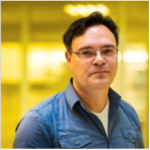 Rutger Nugteren – 14 November 2016
Rutger Nugteren – 14 November 2016
Background
For both parents and healthcare professionals, unfamiliarity with rare diseases means that the correct diagnosis is often only arrived at after a lengthy search process which can stretch into years. There is little or no precise knowledge about the extent, the impact and the causes of this diagnostic delay – the time it takes to determine or diagnose the condition – in the Netherlands. As a result, there is no clear image of the cost to society nor of the social impact. Moreover, there is no overview of solutions that might reduce the diagnostic delay.
Objective
The objective of this study is to obtain insight into the extent, the causes and the effects of such a late correct diagnosis for people with one or more rare conditions. We are studying a selection of 20 widely differing rare disorders, in order to obtain as varied an image as possible. The study is being carried out on the basis of three different research methods. Members of the Dutch Adrenal Society NVACP were invited to take part in the study and more than 200 participated; this is a really fantastic response. Thank you for participating!
A study is currently being carried out into diagnostic delay in connection with rare conditions. Research partners are:
- the Dutch National Institute for Public Health and the Environment (RIVM)
- Applied Health Research (TGO, affiliated to and accommodated in the University of Groningen)
- Patient Associations: The Ehlers Danlos Patient Assoc., Dutch Neurofibromatosis Assoc., and the Dutch Adrenal Society NVACP
- BijnierNET (AdrenalNET)
- Federation of Parent and Patient Organisations (VSOP)
- the Dutch National Genetic Information Centre (Erfocentrum)
Three parts
- Quantitative – an online survey to measure diagnostic delay on the basis of a questionnaire that was compiled in collaboration with BijnierNET. The survey will provide insight into how often diagnostic delay occurs in people with adrenocortical insufficiency and other rare conditions, and what happens to these people during the period that they are undiagnosed. For example: how long did it take before the correct diagnosis was made, and what happened in the period before the diagnosis was made? How many doctors had been visited, and which doctors? What social consequences were experienced?
- Quantitative – Zilveren Kruis (insurer) Health database pilot study. For our study into Addison’s disease we are carrying out a pilot study using completely anonymised expense claims sent to Zilveren Kruis by healthcare providers. The expectation was that this data would show what healthcare services were required in the period preceding diagnosis and how the search progressed. We are now able to determine how often Addison’s disease occurs (both new and existing cases, the incidence and prevalence rates) and to determine the five-year mortality rate on the basis of the data that we have collected in the course of this study. These are the initial results.
We are currently trying to find patterns that will make it clearer what actually happens before Addison’s disease is diagnosed and what happens after the correct diagnosis is made. On the basis of these patterns of healthcare service usage we will try to determine, as accurately as possible, whether there is any diagnostic delay in the case of patients with Addison’s disease.
This is the first time that research of this nature is being carried out on the basis of objective data, in this case expense claims from healthcare providers. Using all the outcomes of the study, we will then endeavour to formulate recommendations to help improve the diagnostic process. We are developing a model that will help us obtain more insight into the period in which it is impossible to make the correct diagnosis.
- Qualitative: in-depth interviews to make an inventory of the experiences of parents who have children with rare conditions. They will be asked about their experiences during the diagnosis process and of the impact it had on them. Subsequently, two focus groups with healthcare professionals will be organised. The experiences of patients will first be analysed and the result of the analysis will then be the starting point for the focus groups with healthcare professionals. These healthcare professionals will then discuss the factors they feel are most likely to be the cause of the diagnostic delay. This study is being carried out by the University Medical Center (UMC) Groningen; a number of patients suffering from adrenocortical insufficiency have already been interviewed.
Results
This will be the first study to provide more detailed information about the period during which people experience symptoms for which no diagnosis can be concluded. Such information is important for both the patients and their healthcare providers. Thanks to this study, they will know more about:
- what happens during this period, what patterns are visible, how long the period lasts,
- what effects it could have on their social life,
- which factors can contribute to shortening the undiagnosed period.
The study will also produce films of interviews with the patient/parents that can be used in e-learning modules and on the BijnierNET website.
A report on the study and other planned publications will provide the knowledge base for training and refresher courses for healthcare providers. This knowledge is essential if the diagnostic delay in the Netherlands is to be reduced. In a previous blog, Laurens Mijnders suggested that healthcare services for patients should be better coordinated. It is certainly conceivable that a ‘directing physician’ could play a role in this respect. This sort of insight is what we will include in our reports and recommendations to the Dutch Ministry of Health, Welfare & Sport.
This study is being carried out as part of the ‘Early Detection’ (Vroegsignalering) project that is funded by the Dutch Health Insurers’ Innovation Fund.
 This Blog is posted in Dutch on BinierNET http://www.bijniernet.nl/2016/10/diagnostische-vertraging-eerste-resultaten-druppelen-binnen-rutger-nugteren/
This Blog is posted in Dutch on BinierNET http://www.bijniernet.nl/2016/10/diagnostische-vertraging-eerste-resultaten-druppelen-binnen-rutger-nugteren/
 Rutger Nugteren, project leader for the study into diagnostic delay, is employed at the Dutch National Institute for Public Health and the Environment (RIVM)
Rutger Nugteren, project leader for the study into diagnostic delay, is employed at the Dutch National Institute for Public Health and the Environment (RIVM)
i am intrigued, where is the results of this study?
Actually it really reminded me of this blog i read recently about the delay in the diagnostic process of rare diseases.
http://www.ndcmedicine.com/blog/27-delayed-diagnostic-process-shortens-the-life-span-of-rare-disease-patients
http://www.ndcmedicine.com/blog/28-delayed-diagnostic-process-of-rare-diseases-lack-of-knowledge-or-leaking-method
What is your opinion about it?